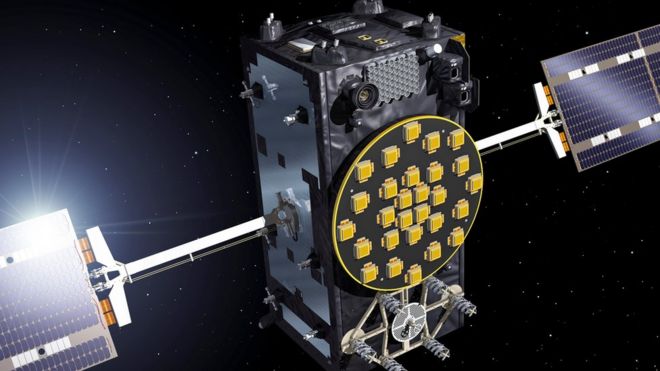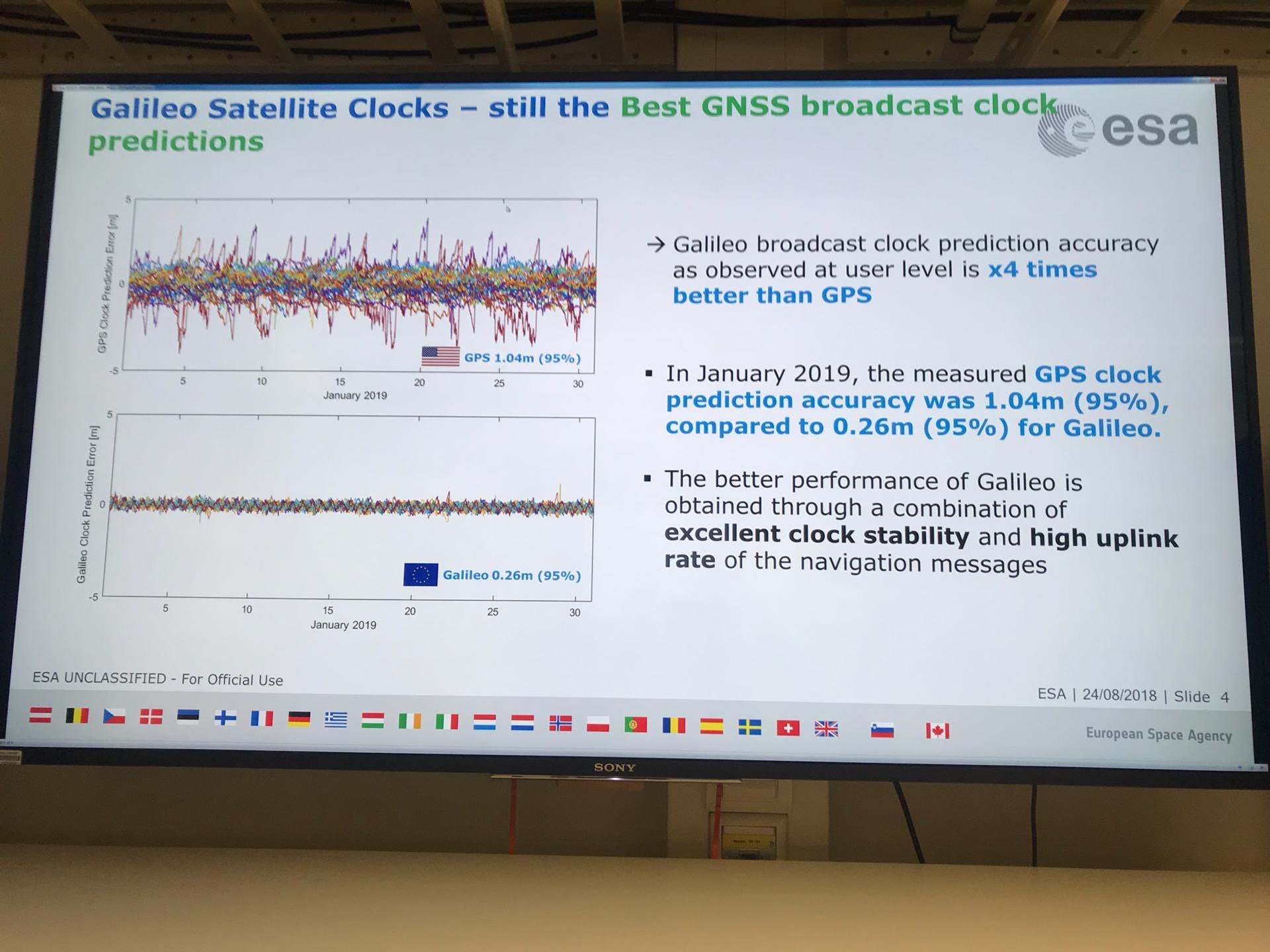Galileo, the EU’s satellite navigation system, is currently affected by a technical incident related to its ground infrastructure.
The incident has led to a temporary interruption of the Galileo initial navigation and timing services, with the exception of the Galileo Search and Rescue (SAR) service.
From BBC by Jonathan Amos
Europe's satellite-navigation system, Galileo, remains offline.
The network suffered an outage on Friday due to what has been described as a "technical incident related to its ground infrastructure".
Engineers worked around the clock over the weekend but there is no update yet on when the service will resume.
The problem means all receivers, such as the latest smartphone models, will not be picking up any useable timing or positional information.
These devices will be relying instead on the data coming from the American Global Positioning System (GPS).
And depending on the sat-nav chip they have installed, cell phones and other devices might also be making connections with the Russian (Glonass) and Chinese (Beidou) networks.
Galileo is still in a roll-out, or pilot phase, meaning it would not yet be expected to lead critical applications.
"People should remember that we are still in the 'initial services' phase; we're not in full operation yet," a spokesperson for the European GNSS Agency (GSA) told BBC News.
"This is something that can happen while we build the robustness into the system. We have recovery and monitoring actions, and we are implementing them, and we are working 24/7 to fix this as soon as possible."
The GSA issued a notification on Thursday warning users that Galileo's signals might become unreliable.
An update was then sent out at 01:50 Central European Time on Friday to say that the service was out of use until further notice.
The search and rescue function on Galileo satellites that picks up the distress beacon messages from those at sea or up high mountains is said to be unaffected by the outage.
Is your phone using Galileo?
YES for iPhone 8 Plus, iPhone 8, iPhone 10/X
Discover if your phone is Galileo-enabled here
YES for iPhone 8 Plus, iPhone 8, iPhone 10/X
Discover if your phone is Galileo-enabled here
What is Galileo?
- A project of the European Commission and the European Space Agency
- 24 satellites constitute a full system but it will also have spares in orbit
- 24 spacecraft are in orbit today; two more will launch next year
- Original budget was €3bn but will now cost more than three times that
- Works alongside the US GPS, Chinese Beidou and Russian Glonass systems
- Promises eventual real-time positioning down to a metre or less
The EU owns the system, and Esa acts as the technical and procurement agent.
A difference between Galileo and GPS
There are currently 22 operational satellites in orbit (another two are in space but in testing), with a further 12 under construction with industry.
In addition to the spacecraft, Galileo relies on a complex ground infrastructure to control the network and monitor its performance.
A strong undercurrent can turn a quick dip into a life-threatening experience.
But help is on the way. when you call 112, Galileo’s added accuracy gets the emergency services exactly where they need to go, fast!
Galileo – European satellites saving lives.
Europe's alternative to GPS went "live" with initial services in December 2016 after 17 years of development.
The European Commission promotes Galileo as more than just a back-up service; it is touted also as being more accurate and more robust.
An outage across the entire network is therefore a matter of significant concern and no little embarrassment.
Since its launch in 1978, GPS has become integral to the functioning of all modern economies.
Usage goes far beyond just finding one's way through an unfamiliar city.
The system's timing function has now become ubiquitous in many fields, including in the synchronisation of global financial transactions, telecommunications and energy networks.
Links :
- Inside GNSS : Galileo Interruptus? Official Notice on 11 July Advises Users that Galileo Service is Degraded on All Satellites Until Further Notice / Galileo Service Degraded On All Satellites Until Further Notice
- CNN : Europe's version of GPS suffers major outage
- Forbes : Europe's GPS System Totally Down After Major Technical Issue Hits Its Satellites


Galileo is still not operational.
ReplyDeleteZDNet : Galileo GPS service is back, as Europe looks at what went wrong
ReplyDeleteHydro : Old Fashioned or Just Safe
ReplyDeleteRivieram : Launched satellite enhances European maritime navigation
ReplyDelete